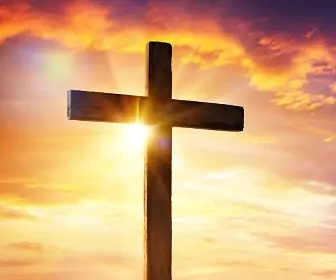
PRESIDENT Uhuru Kenyatta is increasingly being put under pressure to skip his November 12 trial for crimes against humanity at the ICC. His advisors and handlers have devised a multi-faceted approach whose effect is to ensure that he does not keep his date with the Hague-based court.
At the ICC, his legal team recently renewed attempts to have him only attend the opening of the trial and the delivery of judgment with the rest of the sessions conducted via video-link.
At the continental level, the African Union has scheduled an extraordinary meeting to discuss its relationship with the ICC. Already, five countries have filed submissions supporting a decision that would see Uhuru and his deputy William Ruto skip most of the sessions and only be present for crucial ones as agreed between them and the prosecution.
The judges hearing the Ruto trial had allowed him to skip most of the sessions. However, Chief Prosecutor Fatou Bensouda has appealed against the decision and until the matter is resolved, Ruto has been ordered to be present throughout his trial. The trial was adjourned for a few days last week to allow Ruto to attend to the aftermath of the Westgate mall terror attack.
African leaders who spoke at last week’s UN General Assembly criticized the ICC accusing it of taking a hardline stance on Kenya and thereby interfering in the country’s governance.
At the national level, several politicians closely allied to the president and who include Nairobi Senator Mike Sonko have been seeking public support to ensure that the president does not attend his trial which is due to start next month.
Sonko and his group says it would be ’embarrassing’ to have Uhuru at the ICC being questioned by “lawyers who cannot even be prosecutors in their own country” and yet he had been elected to the highest office by Kenyans.
Sonko and his coterie of like-minded politicians are concerned that Uhuru’s appearance at the court would ‘rattle’ his presidency and would send the wrong signal to Kenyans.
At the ICC, Uhuru’s bid to only attend the opening and closing sessions of the trial judgment has been opposed by the prosecution and the witness lawyers.
One of the lawyers representing the victims, Fergal Gaynor expressed fears that Uhuru may fail to appear in court when required if his application was granted.
“If the accused were given leave to be absent from almost all of his trial and, having been made aware of all or part of the evidence admitted at trial, he elected not to return to The Hague for judgment, this could result in a stay of the proceedings, pending his arrest and delivery to the Court.”
In his objection which was filed on Tuesday, Gaynor said the Rome Statute did not envisage that a person accused of participation in a campaign of murder, rape and other crimes against his own citizens would be at liberty in the state in which the crimes were committed.
He said the statute envisaged that such an accused would e physically present in courtroom and far away from the surviving victims of the alleged crimes.
“There is no international human rights instrument, including Rome Statute, which even remotely suggests that an accused can be treated preferentially because of his official capacity,” Gaynor argues.
Gaynor said the court would be setting a ‘historical and dangerous precedent’ with ‘a potential domino effect’ if it granted Uhuru his request to partially attend his trial.
“There is not a single instance in any international tribunal of an accused being permitted to be absent from trial at liberty in the state where the alleged crimes were committed, ”citing instances from the genocide trials held in Arusha and Bosnian Serb politician Radovan Karadzic who is being tried by International Criminal Tribunal for former Yugoslavia but who boycotted the prosecution’s opening statement at the start of his trial but who is in custody.
Gaynor said by granting Uhuru’s request, the court would have to suspend sentencing him if he was convicted until his presidential term was over.
Gaynor said Uhuru was well aware from 2010 that he was likely to spend a considerable amount of time at the Hague and also understood the responsibilities of being president.
Rather than reduce these pressures, Gaynor said Uhuru chose to complicate matters between him and ICC.” The accused could have arranged his affairs in a manner which would reduce, rather than exacerbate, the effect of the ongoing trials on state interests. His choice of Mr Ruto as his candidate for Deputy President is particularly curious in this context,” he said.
Gaynor informed the court that Uhuru in fact acknowledged this conflict in a presidential debate on February 11, 2013 while responding to rival Raila Odinga as to whether he could run Kenya “by Skype from The Hague.”
He says Uhuru was reported as answering: “I will be able to handle the issue of clearing my name while at the same time ensuring that the business of Kenya continues.”








